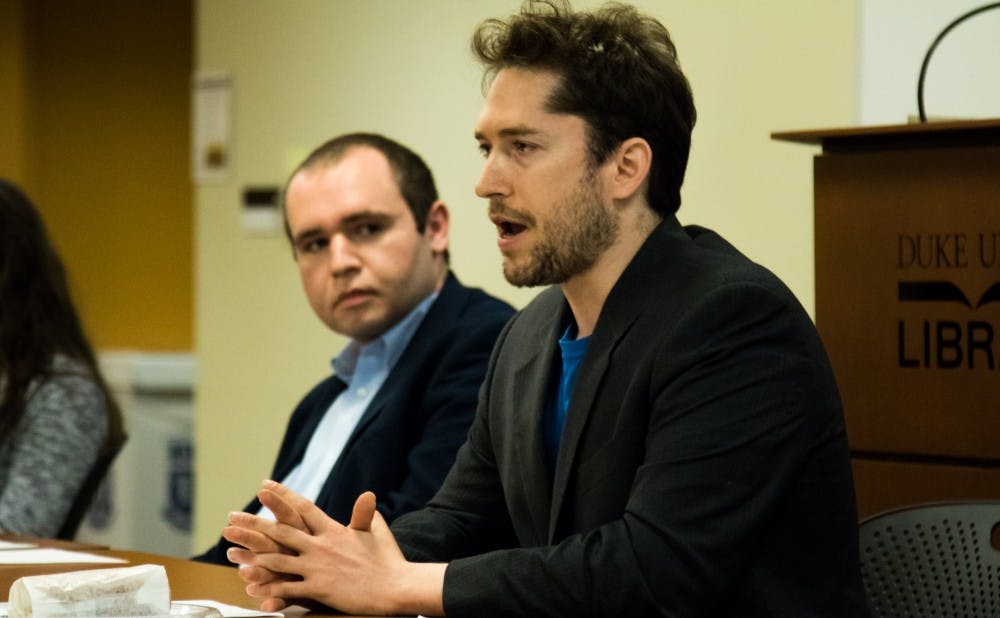Duke experts presented arguments both in favor of and against President Donald Trump's executive order banning immigration at an event Thursday.
The discussion—titled "Scaling the Wall: Should Trump's immigration order to be repealed?"—featured Amber Pearson, researcher scholar at the Kenan Institute of Ethics, and Darren Beattie, a visiting instructor of political science. Although their stances differed, the two speakers both critiqued aspects of the travel ban and agreed that amendments to the U.S.’s immigration policy are necessary.
Beattie, who has previously expressed his support for Trump’s travel ban, defended the constitutionality of the executive orders but argued that they have actually not done enough to stop refugees from entering the country.
“I would say at this point the order has been, unfortunately, quite a failure,” he said. “If you look at the refugee intake, it has barely been curtailed at all. It has been equilibrating at previous levels.”
Pearson, however, questioned the necessity of these executive orders, given pre-existing screening measures for refugees, and asserted that fears about safety were, for the most part, exaggerated and lacked a factual basis.
“The very purpose of terrorism is to convince a population that they can never be safe enough,” Pearson said. “So in a way, it’s a capitulation to terrorism to buy into the idea that we can never be safe enough.”
Beattie’s arguments about the executive orders focused more on the effective implementation and suggested that the countries on the list could be expanded to include Saudi Arabia and other Gulf states.
In what he called a "rhetorical" point, Beattie said he would be okay with repealing the executive order "so long as all of the refugees admitted had to go to the same schools as the politicians' children go to, and resettled into the same nice gated communities that these politicians live in, who have no stake in the outcome [now]."
“I would actually support repealing [the order] so long as the refugees were... living in Bethesda, Maryland, and living in Georgetown," Beattie said.
Pearson argued that the legislation coupled with Trump’s rhetoric jeopardized the U.S.’s international reputation.
“President Trump’s talk about a Muslim ban on the campaign trail and now the executive order that focuses on immigrants from these six Muslim-majority countries would make the U.S. look Islamophobic and make people that we need to have allied with us less likely to support us,” he said.
Pearson also compared current fears of immigrants with different religious and cultural values to the historical example of Irish Catholic immigrants and said that these fears were ultimately unfounded.
During the question and answer portion of the event, an audience member challenged Pearson on this assertion, citing statistics that the majority of Libyans supported the 9/11 terrorist attacks and widespread implementation of Sharia law.
“The fundamental question is whether the U.S. is asking the right questions in screening refugees, and whether or not the risks are so high that they warrant some kind of religious ban,” Pearson responded.
The event was sponsored by the Alexander Hamilton Society and Duke Bench and Bar.
Get The Chronicle straight to your inbox
Signup for our weekly newsletter. Cancel at any time.

